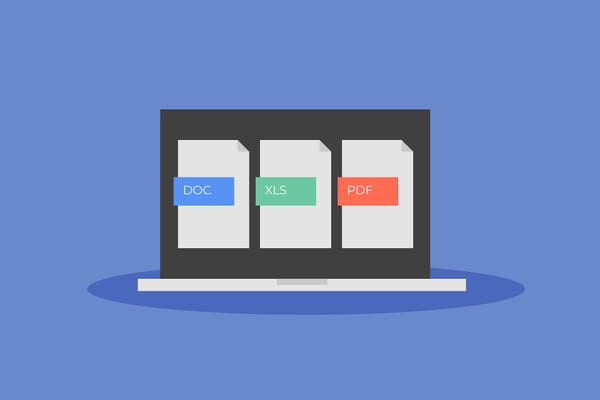Small Office, Big Threats: 7 Ways to Cyber-Proof Your Business in 2025

Running a small business comes with big dreams – and big risks. Between managing supply, marketing strategies, operations, and customer relationships, it’s easy to overlook cybersecurity. But ignoring it can be costly.
Cybersecurity is no longer a concern solely for large corporations. Today’s small offices increasingly find themselves in the crosshairs of cybercriminals. And because smaller businesses often lack the robust security defenses of bigger organizations, they’re low-hanging fruit for phishing, ransomware, supply chain breaches and other attacks. A single cyber incident can disrupt operations, damage your reputation, and wreak financial chaos. Some firms have even gone bankrupt after a run-in with hackers.
But here’s the good news. The right approach will make your small office cyber-resilient without breaking the bank. Let’s look at the most common cybersecurity threats – and the actionable steps to defend against them.
Don’t lose your data
Ransomware operators find ways to breach your IT infrastructure, encrypt your files and demand a ransom to restore access. For small businesses, this can mean downtime, lost revenue, and a tough decision: pay the attackers or lose critical data.
- Do regular backups: Implement automatic, encrypted backups stored both on-site and in the cloud. This ensures you can recover files without paying ransom.
- Deploy security software: Use advanced security solutions that detect and block ransomware before it strikes.
- Train staff: The best defense against ransomware is preventing it in the first place. Teach employees to avoid suspicious attachments and links – the most common entry point for ransomware.
Spot deceptive emails
Phishing attacks trick employees into revealing sensitive information, like passwords or financial data, through fraudulent emails that appear legitimate. These scams can lead to data breaches or unauthorized transactions.
- Filter emails: Use advanced spam filters to block phishing emails before they reach inboxes.
- (Again) train your staff: Conduct regular phishing simulations to train your team on spotting red flags such as misspellings, urgent demands, or unusual/spoofed sender addresses.
- Multi-factor authentication (MFA): Enable MFA across all business accounts to add a layer of protection even if passwords are compromised.
Spot impersonation attacks
With advancements in AI, voice cloning scams are on the rise. Cybercriminals can clone a manager’s voice to trick employees into authorizing wire transfers or sharing sensitive data.
Scammers use recordings from interviews, speeches, or earnings calls to create a voice clone. They then call a finance officer or someone in charge of wire transfers within the firm and instruct them to send money to a specific account, claiming it’s for an urgent business deal. It’s happened.
Add extra layers of verification to thwart impersonation attempts before they cause harm:
- Verification protocols: Implement a strict process to confirm financial transactions, such as requiring secondary verification through a different channel (e.g., a text or face-to-face confirmation).
- (Again) conduct awareness training: Educate staff on voice-cloning technology and how to recognize unusual requests, even if they sound legitimate.
- Secure communication tools: Use encrypted platforms for sharing sensitive information to minimize interception risks.
Strengthen your digital gateways
Let’s face it, managing passwords is a hassle in any environment – at work or at home. Small businesses often become complacent and rely on weak or reused passwords, making it easy for hackers to guess credentials and gain access to systems or accounts. Strong password hygiene can make it far more difficult for hackers to breach your systems.
- Password manager: Use a trusted password manager to generate and store a strong, unique password for each business account.
- Enforce policies: Require employees to use complex passwords and change them regularly.
Secure your partners and vendors
Cybercriminals may target your business indirectly by infiltrating your vendors, partners, or software providers. A compromised vendor’s system could grant hackers access to your network.
In 2023, hackers exploited a critical flaw in Progress Software’s popular file transfer tool MOVEit, opening its clients to dangerous cyber intrusions. Ransomware operators soon exploited the situation and extorted hundreds of companies after hacking into their servers to steal valuable data.
Be selective about your vendors and control their access to head off this potential backdoor to your systems.
- Vet vendors: Work only with vendors who demonstrate strong cybersecurity practices.
- Access control: Limit third-party access to only what’s necessary for their role.
- Regular updates: Ensure all software and systems (including third-party tools) are updated to their latest, most secure versions.
Keep systems updated
Cybercriminals exploit vulnerabilities in outdated software to gain access to networks. Small offices often delay updates, unaware of the risks. Staying current with software updates is one of the simplest yet most effective ways to protect your business.
- Enable automatic updates: Consider turning on automatic updates for operating systems and applications.
- Use a patch management tool: Use tools that monitor and apply patches to ensure no vulnerabilities are unaddressed.
- Asset inventory: Keep an up-to-date list of all devices and software in your office to ensure nothing gets overlooked.
Turn your team into a defense line
The importance of educating staff on cyber threats can never be overstated. Cybersecurity tools are critical, but human error remains a leading cause of security breaches. Without proper training, employees may fall for scams, click malicious links, or mishandle sensitive data. Remember to conduct:
- Ongoing drills: Regular cybersecurity training sessions covering common threats like phishing, social engineering, and password security.
- Incident response protocols: Simulations so employees know how to respond in case of an attack.
- Reporting: Foster a culture where employees feel comfortable reporting suspicious activity immediately – especially if they might have made a mistake and let hackers in the company network.
Cyber threats are evolving rapidly, and small offices can't afford to ignore them. Bitdefender strongly recommends deploying a dedicated security solution to limit the chances of a successful breach.
Bitdefender Ultimate Small Business Security is an extended version of our consumer-friendly security suite. It includes malware detection, ransomware prevention, email protection, account breach protection, scam protection, and VPN. Thanks to a natural, intuitive dashboard designed for use even by non-techies, it can be administered by anyone in your organization.
To see it in action, visit https://www.bitdefender.com/en-us/consumer/small-business-security.
Start cyber-proofing your small office today. Big threats require smart defenses.
tags
Author
Filip has 15 years of experience in technology journalism. In recent years, he has turned his focus to cybersecurity in his role as Information Security Analyst at Bitdefender.
View all postsRight now Top posts
How to Protect Your WhatsApp from Hackers and Scammers – 8 Key Settings and Best Practices
April 03, 2025
Outpacing Cyberthreats: Bitdefender Together with Scuderia Ferrari HP in 2025
March 12, 2025
Streamjacking Scams On YouTube Leverage CS2 Pro Player Championships to Defraud Gamers
February 20, 2025
How to Identify and Protect Yourself from Gaming Laptop Scams
February 11, 2025
FOLLOW US ON SOCIAL MEDIA
You might also like
Bookmarks







